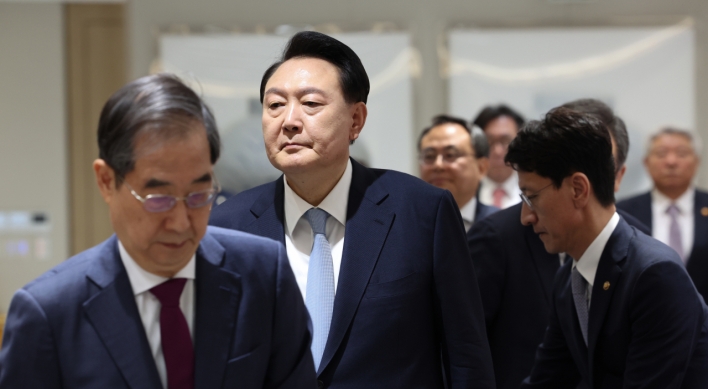Coelho, local authors slam books seizure in east Libya
By Korea HeraldPublished : Jan. 25, 2017 - 13:32
TRIPOLI (AFP) - Brazilian novelist Paulo Coelho joined more than 100 Libyan writers and intellectuals Monday in condemning security forces for seizing books deemed “erotic” or anti-Islamic.
Coelho’s books were among those seized by authorities in the eastern Libyan town of Marj over the weekend.
Security forces there published a video on Facebook over the weekend showing dozens of books imported from Egypt that were seized from a truck heading from Tobruk to Benghazi.
“Contacting the Brazilian embassy,” Coelho tweeted Monday. “There’s little they can do but I can’t just sit and watch my books being burned.”
Brazil’s diplomatic mission to Libya is based in neighboring Tunisia.
The books also included works by Egyptian Nobel Prize-winning novelist Naguib Mahfouz and Arabic translations of books by German philosopher Friedrich Nietzsche and American writer Dan Brown.
In the video, a security official and religious leaders in the town denounced a “cultural invasion,” claiming the books contained information on Shiism, Christianity and sorcery, as well as erotic material that conflicts with the Sunni Islam followed by most Libyans.
It was unclear what would be done with the confiscated books.
Marj, like most of eastern Libya, is under the control of the self-declared Libyan National Army commanded by military strongman Khalifa Haftar.
Lawyer and activist Azza Maghur, novelist and painter Radhouane Bouchwicha and writer Idriss al-Tayyib were among those denouncing the confiscation.
In an open letter, they called it “intellectual terrorism” and “an attempt to muzzle voices and confiscate opinion and thought”.
The seizure of the books triggered an outcry on social media. Libyans condemned it with the hashtag “books are read, not confiscated.”
Since a 2011 revolution that toppled and killed longtime dictator Moamer Kadhafi, a constellation of militias of various political and religious backgrounds have been struggling for control of Libya.
Kadhafi’s regime heavily censored political and ideological books he saw as threatening his authority.
Coelho’s books were among those seized by authorities in the eastern Libyan town of Marj over the weekend.
Security forces there published a video on Facebook over the weekend showing dozens of books imported from Egypt that were seized from a truck heading from Tobruk to Benghazi.
“Contacting the Brazilian embassy,” Coelho tweeted Monday. “There’s little they can do but I can’t just sit and watch my books being burned.”
Brazil’s diplomatic mission to Libya is based in neighboring Tunisia.
The books also included works by Egyptian Nobel Prize-winning novelist Naguib Mahfouz and Arabic translations of books by German philosopher Friedrich Nietzsche and American writer Dan Brown.
In the video, a security official and religious leaders in the town denounced a “cultural invasion,” claiming the books contained information on Shiism, Christianity and sorcery, as well as erotic material that conflicts with the Sunni Islam followed by most Libyans.
It was unclear what would be done with the confiscated books.
Marj, like most of eastern Libya, is under the control of the self-declared Libyan National Army commanded by military strongman Khalifa Haftar.
Lawyer and activist Azza Maghur, novelist and painter Radhouane Bouchwicha and writer Idriss al-Tayyib were among those denouncing the confiscation.
In an open letter, they called it “intellectual terrorism” and “an attempt to muzzle voices and confiscate opinion and thought”.
The seizure of the books triggered an outcry on social media. Libyans condemned it with the hashtag “books are read, not confiscated.”
Since a 2011 revolution that toppled and killed longtime dictator Moamer Kadhafi, a constellation of militias of various political and religious backgrounds have been struggling for control of Libya.
Kadhafi’s regime heavily censored political and ideological books he saw as threatening his authority.
-
Articles by Korea Herald









![[KH Explains] How should Korea adjust its trade defenses against Chinese EVs?](http://res.heraldm.com/phpwas/restmb_idxmake.php?idx=644&simg=/content/image/2024/04/15/20240415050562_0.jpg&u=20240415144419)









